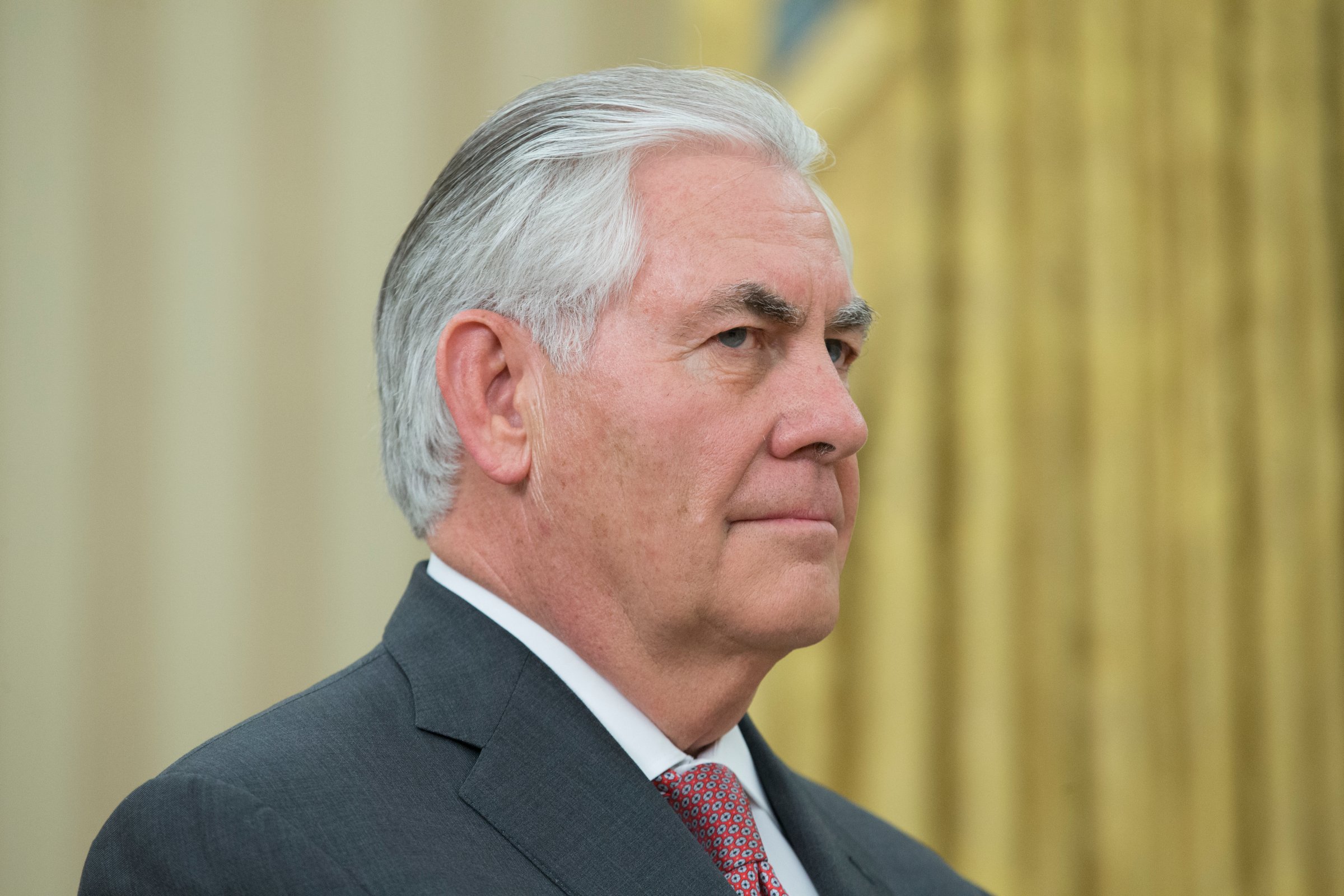
In military parlance, a “missing man” formation is a poignant aerial tribute to a fallen comrade. A group of jets come flying toward the crowd, and suddenly one of them shears off into the sunset, leaving a symbolic empty spot in the formation. It is a sad reminder of the value of those we lose.
Today’s State Department is in danger of becoming a missing man in the interagency formation. We need to move quickly to shore up this absolutely vital element of our national security. Storm clouds are gathering: a new Secretary with no diplomatic experience being obviously marginalized by the White House; massive budget-cut proposals; empty positions across the department, from top to bottom; little to no visible consultation on key diplomatic issues, from a one-China policy to a two-state solution in the Middle East; a growing tendency of global leaders to go to the White House instead of State; and a plethora of reports that Foggy Bottom is in the grips of low morale and true malaise. How dangerous is this state of affairs, and how can we correct it before it gets worse?
In terms of danger, I cannot think of a higher risk for the U.S. than to have widely perceived weakness emanating from the State Department. Our security is based on three key elements of engagement with the world, often called the three D’s: defense, diplomacy and development. Defense, where hard power is housed, is the largest and best funded by far, with nearly $600 billion, more than 10 times the budget of State. Our soft power is dependent on the twin elements of diplomacy from State and development from the Agency for International Development (foreign aid and assistance comes in at less than $25 billion).
As a four-star combatant commander and senior defense leader for almost a decade, I watched the interplay of hard and soft power in peace and crisis. The ability to wield them together is crucial. When we have done so, the outcomes have been far better than when either is used alone: ending the furious wars in the Balkans in the 1990s and the virulent insurgency in Colombia, a vital ally of the U.S.
Where we have tried to use solutions that are hard-power-based, notably in Iraq after the fall of Saddam Hussein in 2003 and in Afghanistan when the Taliban threatened to overwhelm the fragile government in 2009, we have been far less successful. To build working alliances and coalitions, an effective State Department is essential.
First, Secretary Rex Tillerson must be given carte blanche to build his senior team. All Administrations have to balance obligations from the campaign with the desires of Cabinet officials, but the Trump team has been slow in filling top jobs everywhere. Given the press of international affairs and low morale, State should move to the front of the line.
Second, State should raise the public profile of the Secretary. Tillerson, with his superb background, could be a huge force for good. But there has been scant public engagement by the Secretary, taking a highly credible voice off the table. The world needs to see the Secretary in action, and that means taking a press pool abroad and giving occasional press conferences.
Third, budget cuts to State must be avoided, even if the Department of Defense has to bear them. As General James Mattis famously remarked in congressional testimony several years ago, cutting the budget at State only means buying more ammunition for Defense–a vastly less cost-effective expense. A huge cut to foreign aid–a tiny percentage of the overall budget–is likewise a mistake.
Fourth, the leaders of State, Defense, USAID and Homeland Security should hold a strategic summit to begin laying out a coherent, interagency security strategy, including intelligent integration of Homeland Security organizations (like the Coast Guard).
Finally, the President must make clear that he puts full faith in his Secretary of State. That means visibly seeking his counsel, bringing him to significant international meetings (like the upcoming NATO summit) and referring to him when discussing international events. At the moment, such White House attention is missing, and global leaders are losing confidence.
There is still time to reverse what journalist David Ignatius called an “agonizingly slow start,” but the road to irrelevance is before us. Let’s hope the White House gets in formation.
Stavridis is dean of the Fletcher School of Law and Diplomacy at Tufts University and a former Supreme Allied Commander at NATO
More Must-Reads from TIME
- Donald Trump Is TIME's 2024 Person of the Year
- Why We Chose Trump as Person of the Year
- Is Intermittent Fasting Good or Bad for You?
- The 100 Must-Read Books of 2024
- The 20 Best Christmas TV Episodes
- Column: If Optimism Feels Ridiculous Now, Try Hope
- The Future of Climate Action Is Trade Policy
- Merle Bombardieri Is Helping People Make the Baby Decision
Contact us at letters@time.com